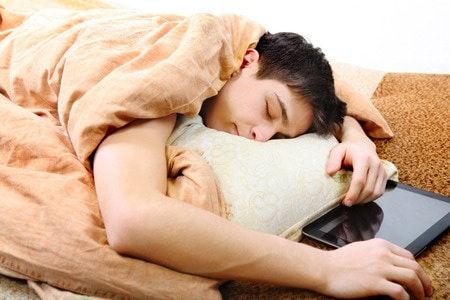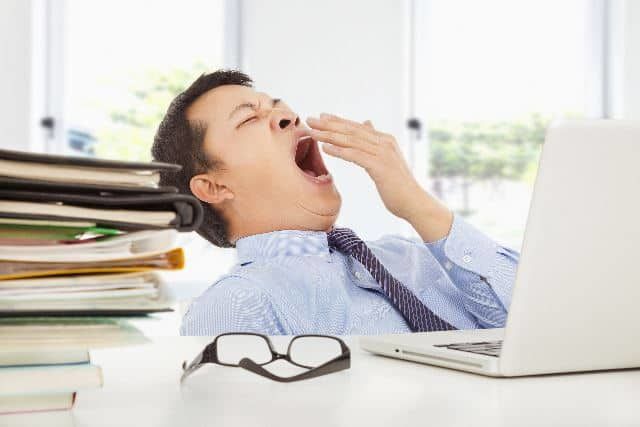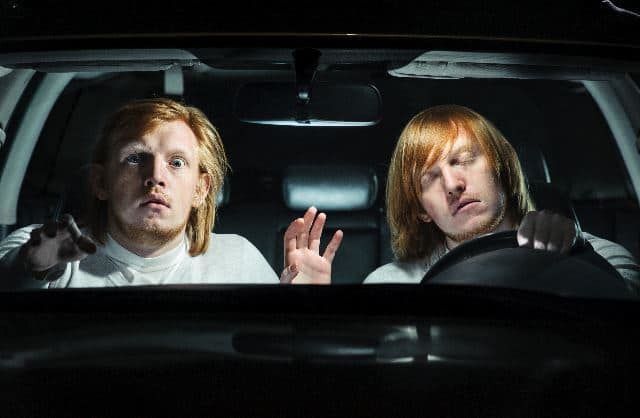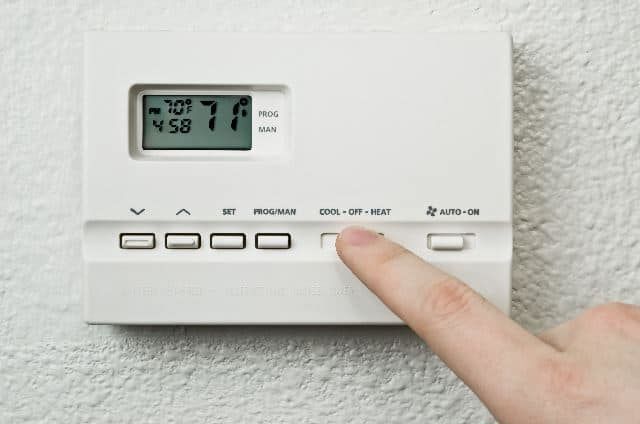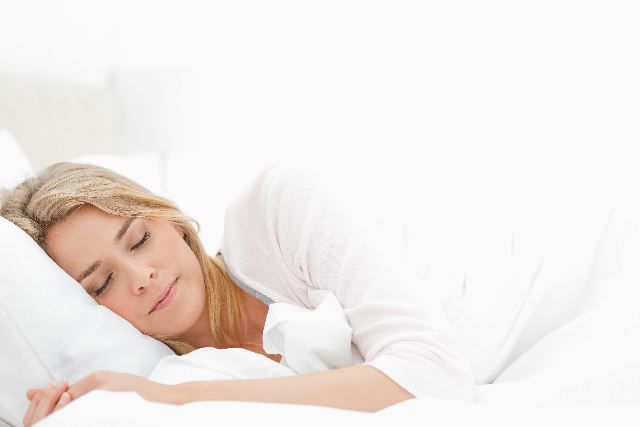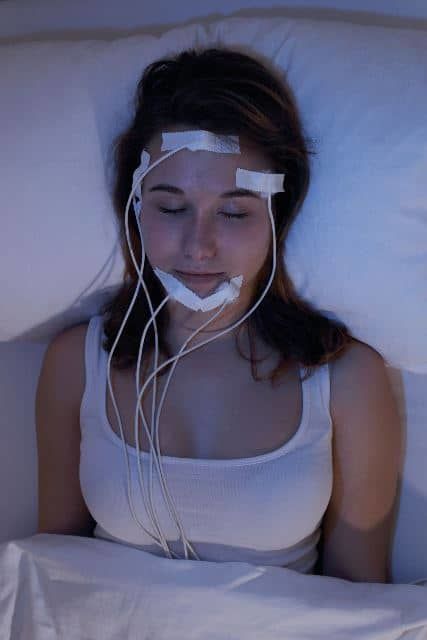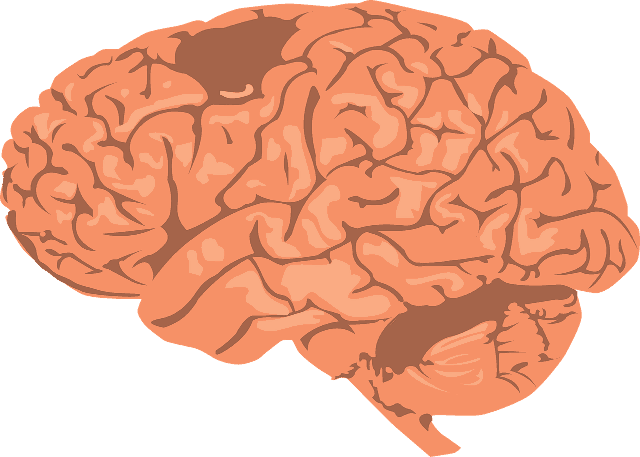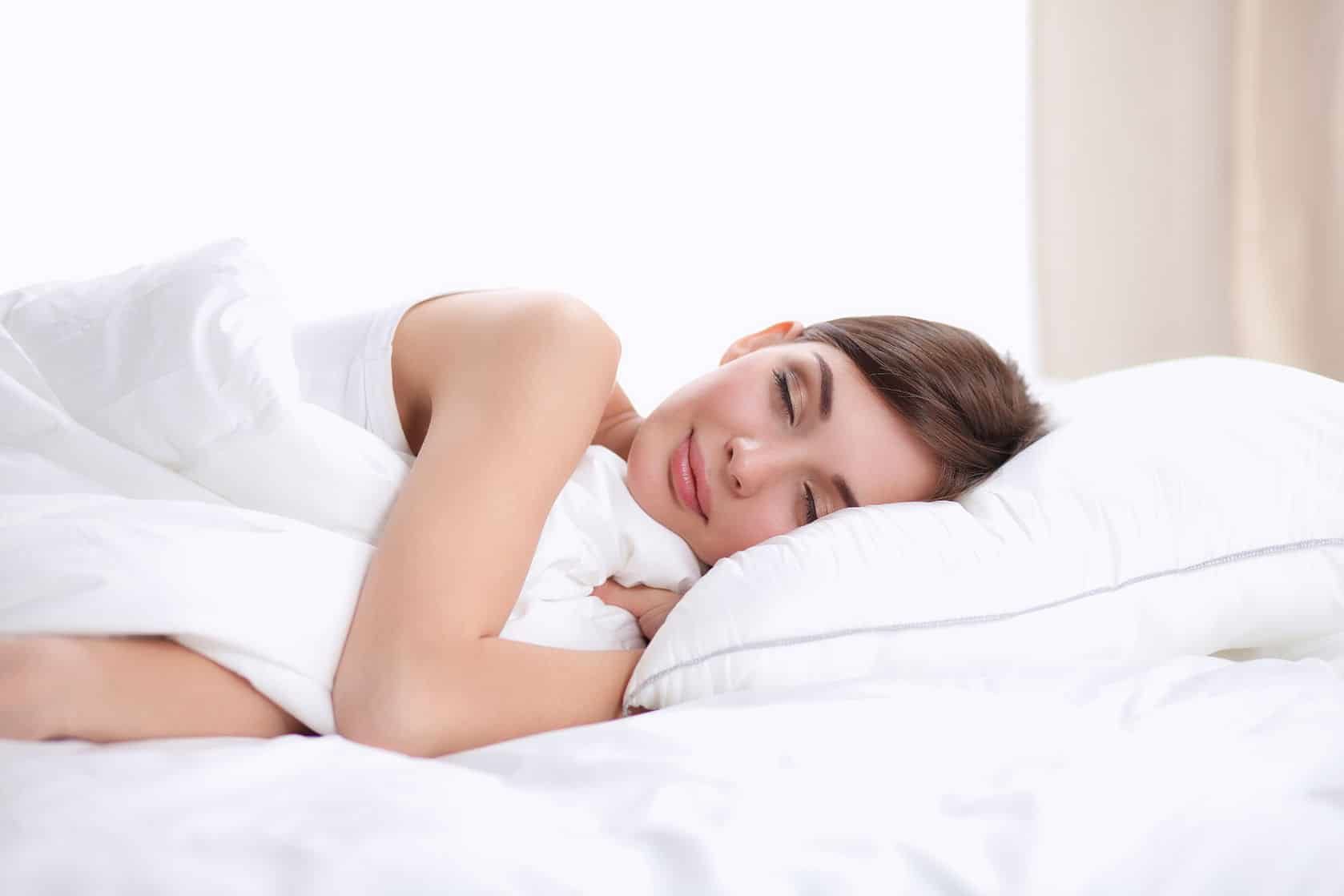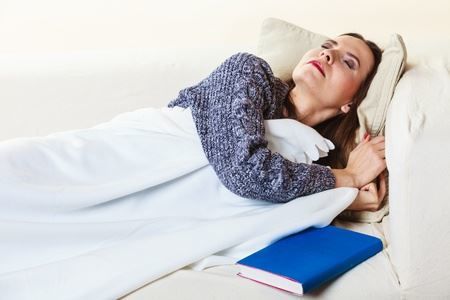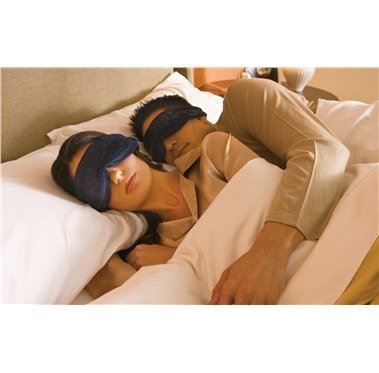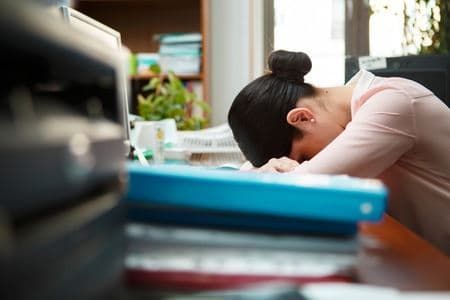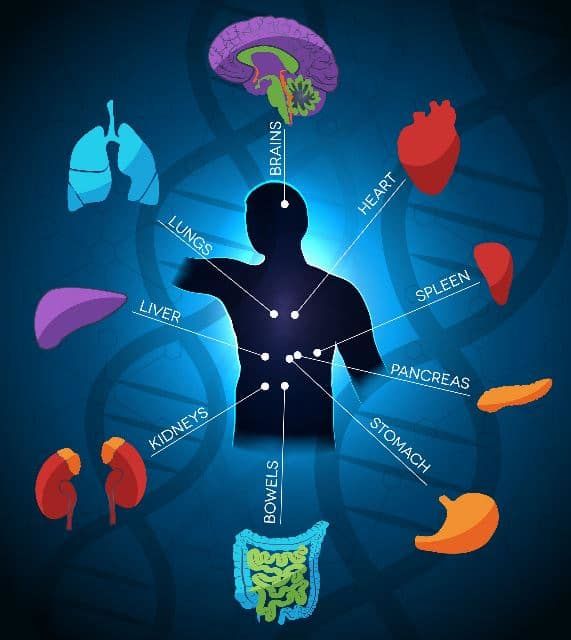The average human will spend 24 years of their life asleep. But considering it is something we all do so much of, how much do you really know about sleeping. When you fall into bed at the end of a long day, or even take a quick half hour nap on the sofa, do you know what happens to your brain and body?
In this article, we look at what happens during sleep. From the moment your head hits the pillow to the time your alarm goes off in the morning. We describe what happens during each phase of the sleep cycle so you understand exactly what is happening and when.
Knowing more about what happens during sleep can help you get a better night’s rest as you understand the importance of the different stages. And once you know more about sleep, you can change your patterns and improve your life – asleep and awake!
What Happens in the Brain During Sleep?
Your brain is an amazing and very complex organ. It controls everything that happens in your body – consciously or unconsciously. But just what is happening in your brain during sleep?
Most people’s answer to that question is simply nothing. Many people wrongly believe that when we sleep our brains “switch off” and stop working overnight. But in fact they are very busy carrying out repairs, maintenance and actually putting you to sleep. Scientists know there are two groups of cells at work when your body goes to sleep – theventrolateral preoptic nucleus in the hypothalamus and the parafacial zone in the brain stem. When these areas are active, your brain loses consciousness.
So despite most people believing your brain is resting while your body is, it is actually hard at work. An interesting study showed your brain can actually still make decisions while you sleep. Researchers asked people questions while they slept and told them to press buttons to indicate the answers. Left or right buttons were pushed depending on the answer.
Even if the person was asleep, their brain was still sending motor function signals to push the right buttons. Even though the brain was hard at work, when the person awoke they had no memory of pushing the buttons in their sleep.
What Happens During Sleep Deprivation?
Prolonged periods without sleep, or even getting four or five hours a night, can have serious health implications. Losing a couple of hours sleep twice a week might make you feel a bit foggy and confused but long term sleep deprivation can reduce your immune system and lead to mental and physical problems.
People that aren’t getting enough sleep are more prone to obesity and diabetes, colds and flu as well as mental health problems. In the longer term, you might end up with hypertension or heart disease.
While you can survive without sleep, and there is no medical proof that a lack of sleep alone will kill you, it increases the risk of other things going wrong. You could find it hard to control your emotions, your motor skills will stop working as well and your concentration definitely suffers.
Driving without having enough sleep, or bad quality sleep, can affect everything. You might suffer at work, find it hard to drive or operate machinery.
Drinks for Sleep
If you’ve been struggling to sleep or stay asleep once in bed you might have been searching for some home remedies.Drinking a glass of warm milk, a cup of chamomile tea or even a steaming mug of cocoa have all been tried and tested methods of improving your sleep quality and quantity over the ages.There is scientific proof that milk helps you sleep and the same can be said of the humble chamomile plant.
However there are even more drinks you can try to improve the quality of your sleep including tart cherry juice, almond milk or coconut water. So if you’re not getting any help from the traditional suggestions try another blend and see if that works for you.
But as dehydration can actually disrupt your sleep, just a simple glass of water before bed can help you get a sound night’s sleep.
The Best Temperature for Sleep
If you find it difficult to sleep in winter it could be because your home is too hot rather than too cold. Getting the body to the right temperature is key to getting a good night’s rest. As your body relaxes into sleep, your body temperature naturally drops a few degrees. This means in the winter when you have heating on, hot water bottles and electric blankets to keep you warm, you are actually creating a bad environment for sleep.
By keeping your home artificially warm, you’re tricking your body into staying awake. Your body needs to cool before sleep so turn down the thermostat and snuggle into bed. If you are too warm, your brain takes this as a sign you are ready to wake up as your body naturally warms up as it wakes you out of deep sleep. To recreate the cooling down of your body before rest, try having a hot bath around an hour before you want to go to sleep. The accelerated cooling effect this has will trick your body into thinking it is time to go to sleep. You can also try getting a mattress with cooling properties.
You may be interested in: The Benefits of Sleeping in a Cold Room
What Happens When You Wake Up During REM Sleep?
While waking during the REM phase of sleep can be unpleasant, it is not harmful. Over time, humans have evolved to sleep in stages to get the best quality rest but also to be able to wake quickly and safely. In the past, we needed to be more alert to defend ourselves from predators. Nowadays, we are more likely to sleep lightly if we are worried about an alarm going off or listening out for the cries from a newborn.
REM sleep is controlled by a small group of cells found in your brain stem. This subcoeruleus nucleus is vital for this stage of sleep and if the brain stem becomes injured or these cells are diseased people do not get muscle paralysis which is usual in REM sleep. Your body freezes your muscles during REM sleep to stop you reacting to vivid dreams but if your subcoeruleus nucleus isn’t working correctly, you can end up lashing out or moving too much during this dream stage of sleep.
One of the most unsettling side effects of REM sleep is night terrors. These episodes occur mainly in children and happens when you wake from a deep, non-dreaming sleep. Nightmares occur from REM sleep when your brain is most active. Night terrors may make the person scream, cry out, thrash around or even hit out. It can be upsetting as a person may not recognise you if you try to comfort them and they will have no memory of it happening.
It is not recommended to wake someone up and make sure they are fully conscious when they are experiencing a night terror. The person may not recognise you or “snap out of it” for up to 15 minutes and this could make them more agitated and distressed.
How Sleep Apnea Affects Your Sleep
Sleep apnea is a breathing problem that affects your sleep pattern. It can be frightening to listen to as sufferers often stop breathing for long periods of time while asleep. This loss of breathing is then followed by a cough, splutter or deep intake of breath as the person regains oxygen.
While some people suffer from this only slightly and have problems snoring, for some sleep apnea sufferers it can be debilitating.
As a result of the airways becoming blocked while the patient is sleeping the person never really gets into a stage of deep sleep. The sleep apnea prevents the stage of deep sleep where the body and brain gets most of the repairs done.
Over time, people with sleep apnea will get the same problems as someone who is only sleeping for four or five hours a night. Even if you’re in bed for ten hours, if the quality of sleep is poor you will suffer the side effects.
What Happens During a Sleep Apnea Study
Many people with sleep apnea don’t realize they are suffering from it and are usually told by their partner or family. As the person who is dealing with sleep apnea doesn’t know much about it, the first clue they will usually get is some of the symptoms that run alongside the disorder.
If you’re tired all the time even though you believe you’re getting eight or nine hours sleep it might be worth checking if you’re suffering from sleep apnea.
During a study, patients will be asked to stay overnight and sleep. A polysomnogram will measure brain activity, eye movements, blood pressure, oxygen levels and heart rate.
By taking these measurements overnight, researchers can tell what is going wrong at each stage of a person’s sleep.
Sleep and Creating Memories
While you are asleep, your brain is busily creating and filing away your memories. The brain will form new memories and then store them away as well as linking older memories with newer ones – all while you are sleeping.
If you don’t get enough sleep, your memory may be impaired as the hippocampus which stores memories is affected. In 1993, scientists discovered that your brain runs through everything that has happened in the day during sleep. The process helps your brain retain this information – a discovery that was backed by a study done at the University of Arizona.
Rats were studied as they ran on a track and then as they slept. While the rats were running along the track, their brain was sending signals in a particular pattern. The scientists found that the patterns were the same when the rats went to sleep and their brain replayed the run through the track to help build memories.
You may want to read: The Stages of Sleep
The Four Stages of Sleep
There are four key stages to your sleep cycle and you must make sure to pass through every one of these stages in order to get a quality sleep.
- Stage one is within the first ten minutes of falling asleep. Your muscles start to relax slowly but as you are only lightly asleep you can be woken easily by a slight noise or movement. This is also the stage of sleep that people experience a hypnic jerk – which we will explain later.
- Stage two makes up the bulk of your sleep cycle as more than half of your sleep will be spent in this stage. You are not deeply asleep but your body is at rest for around 50 minutes in this stage. If you are woken during stage two sleep it can leave you feeling confused and disorientated. Your breathing relaxes and slows down as your body temperature drops. It is important that your breathing slows as this also reduces your heartbeat and gives that important muscle a rest. Your brain activity reduces right down during this time as the brain itself is preparing for the most important stage of sleep.
- Stage three is deep sleep. While you might think this lasts the longest (especially if you’ve been woken up while in deep sleep!) it is actually only around 20 minutes. Your body needs this deep sleep to repair and restore itself. The brain waves are slow and steady and your muscles and tissues are repaired. Without this stage of sleep, your brain is unable to process and repair properly which is why your immune system and health may suffer. Hormones are distributed around the body during this stage and cells are rejuvenated. This is the most common phase of sleep for people to sleep walk or sleep talk.It is very difficult to wake someone from a deep sleep and you may find even though they are appearing to talk they will not become fully conscious.
- Stage four of your sleep cycle is REM and again that last for 20 minutes. This is when your brain kicks back into action and works hard although your muscles are paralysed.
You may be interested in: At What Stage of Sleep Do You Dream?
What is a Hypnic Jerk?
This unpleasant sensation happens in the first stage of sleep when our bodies are preparing for rest. It feels like a jump, twitch or even a sensation of falling which can be distressing. Thousands of people around the world have hypnic jerks both regularly and irregularly. The involuntary muscle spasms can also make your heart race and leave you feeling bewildered as you are quickly shaken awake.
Although it is more common in people with bad sleeping patterns or sleep disorders you might find yourself developing a hypnic jerk later in life even if you’ve never had one before. If you’re work pattern changes to night shifts, or you have a newborn baby, these are all triggers for hypnic jerks. Even if you’ve never had trouble sleeping you can still experience this weird phenomenon.
What Happens to Your Muscles During Sleep
Sleep is very important for your muscles as they need this time to relax and repair. If you are training and trying to build muscle, it is crucial you get enough sleep as your body needs this time to repair any damage and divert chemicals and hormones to your muscles.
As you fall asleep, your muscles relax slowly. Your brain takes this time to work around your body and “switches off” your muscles so they are dormant and resting.
As you sleep, your muscles are gradually relaxed until they become completely still.
At the fourth stage of sleep, the REM stage, your muscles are paralysed so you don’t involuntarily “act out” your vivid dreams and hurt yourself.
How Wearing a Mask Affects Your Sleep
Wearing a sleep mask can really improve the quality of your sleep. Darkness helps your body produce melatonin which is the chemical that controls the sleep.
By putting on an eye mask when you go to bed, the brain is tricked into thinking it is later, and therefore darker, than it is.
This is a particularly useful trick if you’re working shifts where you’re needing to sleep during the day. The outside light can make it hard to get good quality rest as your body keeps thinking it needs to wake up as the natural daylight will confuse your brain.
What Happens When You Sleep During the Day
There is conflicting information about whether sleeping in the day is good or bad for your health. Studies show that a sleep in the day is okay as long as it is only up to 40 minutes.
Napping for too long is linked to a higher risk of developing metabolic syndrome which can lead to all sorts of difficult conditions.
You could end up with high blood pressure, increased cholesterol, gaining weight around the waist and increasing your blood sugar. All of these symptoms can increase the risk of getting heart disease. So if you find yourself craving a few extra minutes sleep in the day, set an alarm for 40 minutes and snooze.
What Happens to Your Organs During Sleep
It’s not just your muscles that relax during sleep, your body’s organs also start to shut down and go into a stasis. Your liver works to filter toxins and produce urine during the day but while you sleep this slows right down so you don’t have as much urine produced.
This stops you getting up lots through the night and is why your urine is usually darker first thing in the morning.
Conclusion
So now you know what happens during sleep. We looked at the changes to your brain waves, the way your muscles react and even the side effects of not getting enough sleep.
So next time you decide to push your bedtime back an hour or if you’re laying in bed struggling to sleep, hopefully the information in this article will help you feel more in control of how you sleep.
If you’ve found this article helpful, please comment below and share it with your family and friends.
